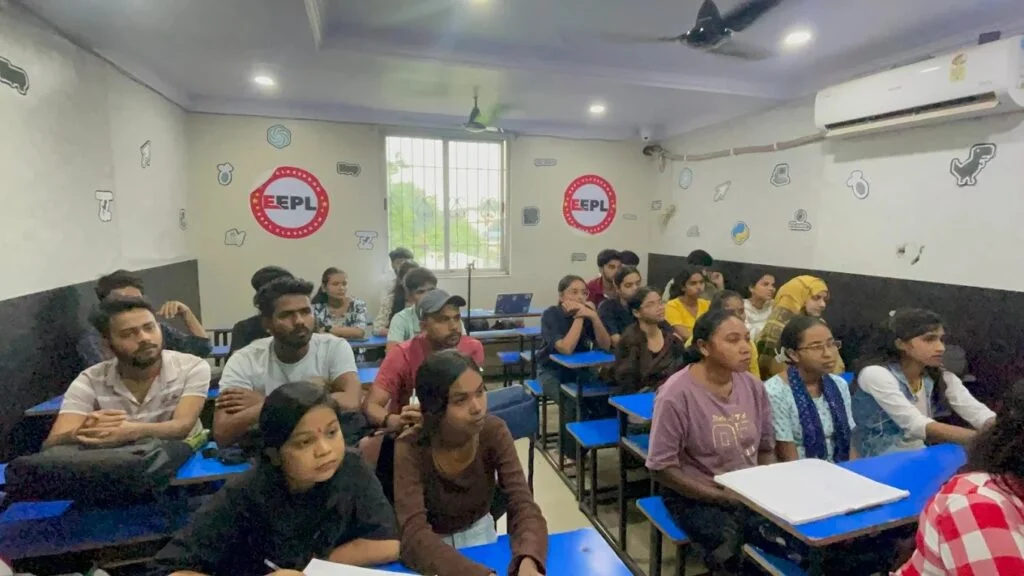Comprehensive Curriculum Design
EEPL Classroom boasts a meticulously structured curriculum that addresses a multitude of topics within the realms of computer science and programming. This comprehensive curriculum is adeptly designed to cater to a variety of skill levels, ensuring that both beginners and advanced learners find suitable content that meets their educational needs. The structured approach allows students to progressively build their knowledge while reinforcing previously acquired skills.
The curriculum integrates foundational concepts in computer science, such as data structures and algorithms, alongside programming languages including Python, Java, and C++. By utilizing these modern programming languages, EEPL Classroom prepares its students for the demands of current industry standards. Each topic is presented in a logical sequence that encourages a step-by-step learning process, leading students from basic coding principles to more complex programming techniques.
A notable feature of EEPL Classroom’s curriculum is its emphasis on real-world applications. Course content is curated to ensure that learners understand not just theoretical concepts but also how these concepts apply in practical scenarios. This is further enhanced through project-based learning, where students engage in hands-on projects that simulate real-life situations. Such an experiential approach not only solidifies theoretical knowledge but also equips students with the skills necessary to tackle practical challenges in the workplace effectively.
Additionally, the curriculum is continually updated to reflect the latest advancements in technology and industry practices. This commitment to relevance ensures that students are not only learning valuable skills but are also being prepared for a rapidly evolving job market. Whether one is just starting out or looking to sharpen existing skills, the comprehensive curriculum at EEPL Classroom stands out as a crucial element in fostering capable and industry-ready professionals.
Expert Instructors and Mentorship
The quality of instructors significantly influences the learning experience in any classroom, particularly in specialized fields such as computer science and programming. At EEPL Classroom, our instructors possess impressive qualifications and extensive experiences in technology and education. Many hold advanced degrees in computer science or related disciplines, while others bring years of practical experience in the industry. This blend of academic knowledge and hands-on skills ensures that students gain both theoretical understanding and practical applications of their studies.
EEPL Classroom recognizes that teaching goes beyond mere dissemination of knowledge; it encompasses mentorship and personal guidance. Our instructors are dedicated to cultivating an environment where students feel supported in their learning journeys. Through one-on-one mentorship, they help students navigate challenges, set achievable goals, and build confidence in their abilities. This personalized attention is critical in fostering a strong foundation in programming and technology, as it allows instructors to tailor their teaching methods to suit individual student needs.
Creating a collaborative atmosphere is another cornerstone of our teaching philosophy at EEPL Classroom. Instructors actively engage students through interactive courses that encourage participation and discussion. This engagement not only keeps students motivated but also enhances their understanding through peer interactions and group projects. Instructors often facilitate a variety of collaborative activities, empowering students to work together on solving complex problems, thus fostering teamwork and communication skills essential in the tech industry.
By emphasizing expertise in their fields and nurturing a supportive environment, EEPL Classroom’s instructors play a vital role in shaping the next generation of tech professionals. Their commitment to mentorship ensures that students not only learn but also grow both personally and professionally, preparing them for a successful future in the fast-evolving world of technology.
Hands-On Learning Experience
Hands-on learning is an essential component in mastering computer and programming skills, and at EEPL Classroom, this approach is integral to the educational experience. The incorporation of practical learning methods ensures that students not only grasp theoretical concepts but also develop the ability to apply these ideas effectively in real-world scenarios. This methodology is crucial in the ever-evolving fields of technology and programming, where practical skills often precede theoretical knowledge in importance.
EEPL Classroom emphasizes a curriculum that includes various coding exercises, lab sessions, and live projects. These elements are designed to engage students actively and immerse them in the material. By participating in coding exercises, students have the opportunity to tackle real coding challenges, thus solidifying their understanding of programming paradigms and enhancing their problem-solving capabilities. Lab sessions provide a structured environment where students can experiment, debug, and refine their skills under guided instruction, ensuring that they cultivate a deep comprehension of the subject matter.
Live projects play a pivotal role in EEPL Classroom’s hands-on learning strategy. These projects often mirror industry standards, thereby preparing students for the challenges they will face in their professional careers. Working collaboratively on these initiatives fosters teamwork and simulates a real-world programming environment, making the learning experience more relevant and practical. The benefits of this experiential approach are significant; it not only increases the retention of knowledge but also accelerates skill development, ultimately leading to more competent and confident graduates. This active engagement in the learning process is a hallmark of EEPL Classroom, distinguishing its approach to teaching computer and programming classes.
Community and Networking Opportunities
EEPL Classroom is not just an educational institution; it is a vibrant community that fosters connections among students, faculty, and industry professionals. By choosing EEPL Classroom for computer and programming classes, students gain access to a diverse network of peers who share similar interests and goals. This aspect of the learning environment encourages collaboration and inspires innovation as students engage in discussions, share ideas, and work together on projects.
Networking opportunities are an essential component of the education process at EEPL. Students have the chance to connect with experienced professionals through guest lectures, workshops, and mentorship programs. These interactions provide students with valuable insights into the tech industry, helping them understand the skills and qualifications needed to succeed in their careers. Moreover, through alumni events, current students can engage with graduates who are now working in various sectors of technology, further enhancing their networking prospects.
In addition to formal networking events, EEPL Classroom promotes collaborative projects, allowing students to work in teams to tackle real-world challenges. This experiential learning enhances not only technical skills but also soft skills such as teamwork, communication, and problem-solving. Participation in these projects prepares students for the kind of collaborative work they will encounter in their professional lives.
Furthermore, EEPL Classroom regularly hosts technology events and seminars that feature industry experts and thought leaders. These events serve as a platform for students to stay updated on the latest trends, tools, and technologies in the field. By attending these gatherings, students can further expand their network and keep abreast of potential career opportunities that can arise in an ever-evolving tech landscape.










